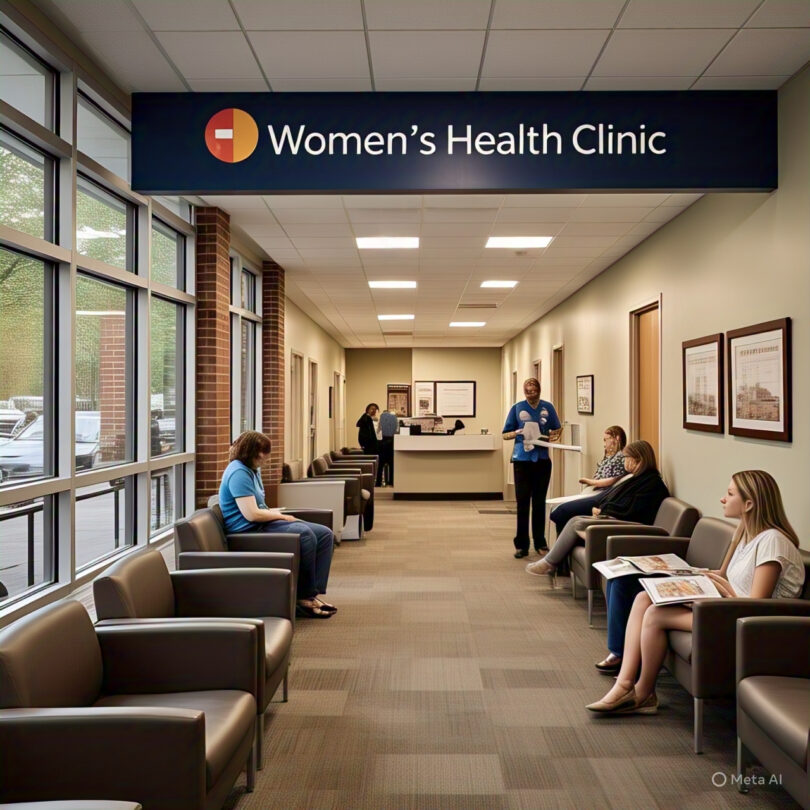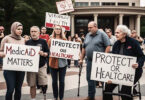버지니아주의 낙태 건수가 지난 해 크게 증가했습니다. 구트마허 연구소(Guttmacher Institute)의 보고서에 따르면, 이는 낙태를 금지하거나 제한한 다른 주에서 환자들이 유입된 영향으로 분석됩니다.
2024년 버지니아주에서 의료진에 의해 시행된 낙태는 약 5,500건 증가해 전년 대비 16% 상승했습니다. 전국적으로 낙태 금지가 없는 주들에서는 평균 0.4% 증가에 그쳤다는 점에서, 이 수치는 매우 이례적입니다.
구트마허 연구소의 이사벨 도카르포 선임 연구원은 “2023년에서 2024년 사이, 타주에서 버지니아로 유입된 환자 수가 86% 증가했다”며, 플로리다주의 낙태 금지 조치가 주요 원인이라고 설명했습니다. 플로리다는 2024년 5월부터 임신 6주 이후 낙태를 금지하고 있습니다.
버지니아는 현재 남동부에서 임신 6주 또는 12주 이후 낙태를 제한하지 않은 유일한 주입니다. 덕분에 낙태를 원하는 환자들이 제한 없이 서비스를 받을 수 있는 가장 가까운 지역 중 하나가 됐습니다.
계획된 부모회(Planned Parenthood)는 “Dobbs 판결 이전에는 환자 중 2~3%만이 타주 출신이었지만, 현재는 그 비율이 30%에 달한다”고 밝혔습니다. 이는 플로리다 낙태 제한 이후 급증한 수치입니다.
버지니아는 임신 초기와 중기 동안 낙태를 허용하며, 후기에는 세 명의 의사가 위험성을 인정할 경우 예외적으로 허용됩니다. 또한 원격의료와 당일 진료 확대 등으로 접근성을 높였으며, 약물 낙태의 경우 환자가 실제로 버지니아에 있어야 합니다.
반면, 낙태에 반대하는 단체인 버지니아 인간 생명 협회(VSHL)는 이번 증가를 “비극적”이라고 표현하며 우려를 표했습니다.
현재 버지니아 헌법은 낙태를 명시적으로 금지하거나 보호하지 않지만, 주 의회는 낙태 권리를 명시하는 헌법 개정안을 추진 중입니다. 해당 안건이 향후 주민 투표로 이어질 가능성도 있습니다.
공화당과 민주당의 주지사 후보들도 각각 생명 보호와 생식권 보호를 주장하며 입장을 내놓고 있습니다. 전 연방 하원의원 아비게일 스팬버거는 “버지니아는 남부에서 생식권 보호의 마지막 보루”라며 낙태 접근성의 중요성을 강조했습니다.
Virginia sees spike in abortions due to influx of out-of-state patients
Virginia was among the states that saw a substantial increase last year in the number of abortions provided.
That’s according to a new report from the Guttmacher Institute, a research organization that advocates for access to reproductive care including abortion. The increase is likely due to an influx in patients from states with new or more restrictive abortion bans.
Virginia saw 5,500 more clinician-provided abortions in 2024 than the year before, a 16% increase. That’s an outlier compared to the national trend, where there was just a 0.4% increase in states without total bans.
“There was an 86% increase in the number of patients traveling from out of state to Virginia for abortion care between 2023 and 2024, and we think that the Florida ban is likely playing a big role here,” said Guttmacher senior research associate Isabel DoCampo.
Most states without total abortion bans saw small changes to the number of abortions performed between 2023 and 2024. Arizona, California, Kansas, Ohio and Virginia, states that did not change their abortion legislation in the past two years, saw substantial increases. Virginia saw the most significant increase, outpaced nationwide only by Wisconsin, which restored abortion services in the latter half of 2023.
Virginia is the last state in the Southeast without a ban on abortions after six or 12 weeks of pregnancy — Florida, which previously allowed abortions up to 15 weeks, enacted a six-week ban that took effect May 1, 2024.
“Virginia is the second-closest state for Florida patients to access abortion, and it’s the closest place without a waiting period to access abortion,” DoCampo said. “It’s also likely that people in the Southeast who would have traveled for care to Florida are now going to Virginia instead.”
That maps with findings from the Virginia League for Planned Parenthood, which operates clinics in Virginia Beach, Hampton and Richmond.
“Before the Dobbs decision in 2022, the amount of out-of-state patients was 2 to 3% of our entire patient population,” said Planned Parenthood spokesperson Rae Pickett, referencing the Supreme Court decision that stripped away the nation’s constitutional protections for abortion. “After the Dobbs decision, that increased very quickly to 15%. So that was a very large jump. Then, after the six-week abortion ban went into effect in Florida, our numbers went from 15 to 25 to 30% and have stayed there for that period of time.”
Virginia permits abortions during the first and second trimester, or during the third trimester if three physicians agree the pregnancy will lead to the woman’s death or substantially harm her health.
VLPP increased same-day and telehealth appointment availability in anticipation of the Florida, as well as the use of patient navigators, who help patients coordinate travel. The Planned Parenthood affiliate operates a virtual clinic via telehealth, but people seeking an abortion pill for up to 11 weeks after their last period must be physically located in Virginia at the time of their appointment, and the medication is mailed to a Virginia address.
“I think the Virginia case shows us that an abortion ban in one place has a dramatic impact on the abortion care infrastructure in other parts of the country,” DoCampo said.
The Virginia Society for Human Life, an anti-abortion advocacy group, described the report as tragic.
“The new numbers suggest a deeply alarming trend,” said Olivia Gans Turner, president of VSHL, in a statement.
Virginia’s constitution does not expressly prohibit or protect abortion. That could change: the General Assembly voted this session along party lines to advance a constitutional amendment that would enshrine a right to abortion in the state constitution. If the legislature passes that same resolution next year, the amendment will appear on the ballot for public referendum in 2026.
The state constitutional amendment process excludes input from the governor, but both the Republican and Democrat candidates for governor have taken positions on the issue. Lt. Gov. Winsome Earle Sears, the Republican nominee, spoke at Virginia’s March for Life earlier this month.
“All those who are for abortion are already born,” she said. “We stand for life, and how can it ever be wrong to stand for life?”
Former U.S. Rep. Abigail Spanberger previously voted in Congress in favor of codifying the abortion protections offered in Roe v. Wade.
“Virginia is the last bastion in the South when it comes to protecting reproductive freedom — and the consequences of this reality on women and families are clear,” she said in a statement. “In the aftermath of the Supreme Court overturning Roe v. Wade, families across the Commonwealth continue to worry that extreme politicians and judges will rip away their right to privacy, jeopardize their safety, and leave their families without access to medical care.”








